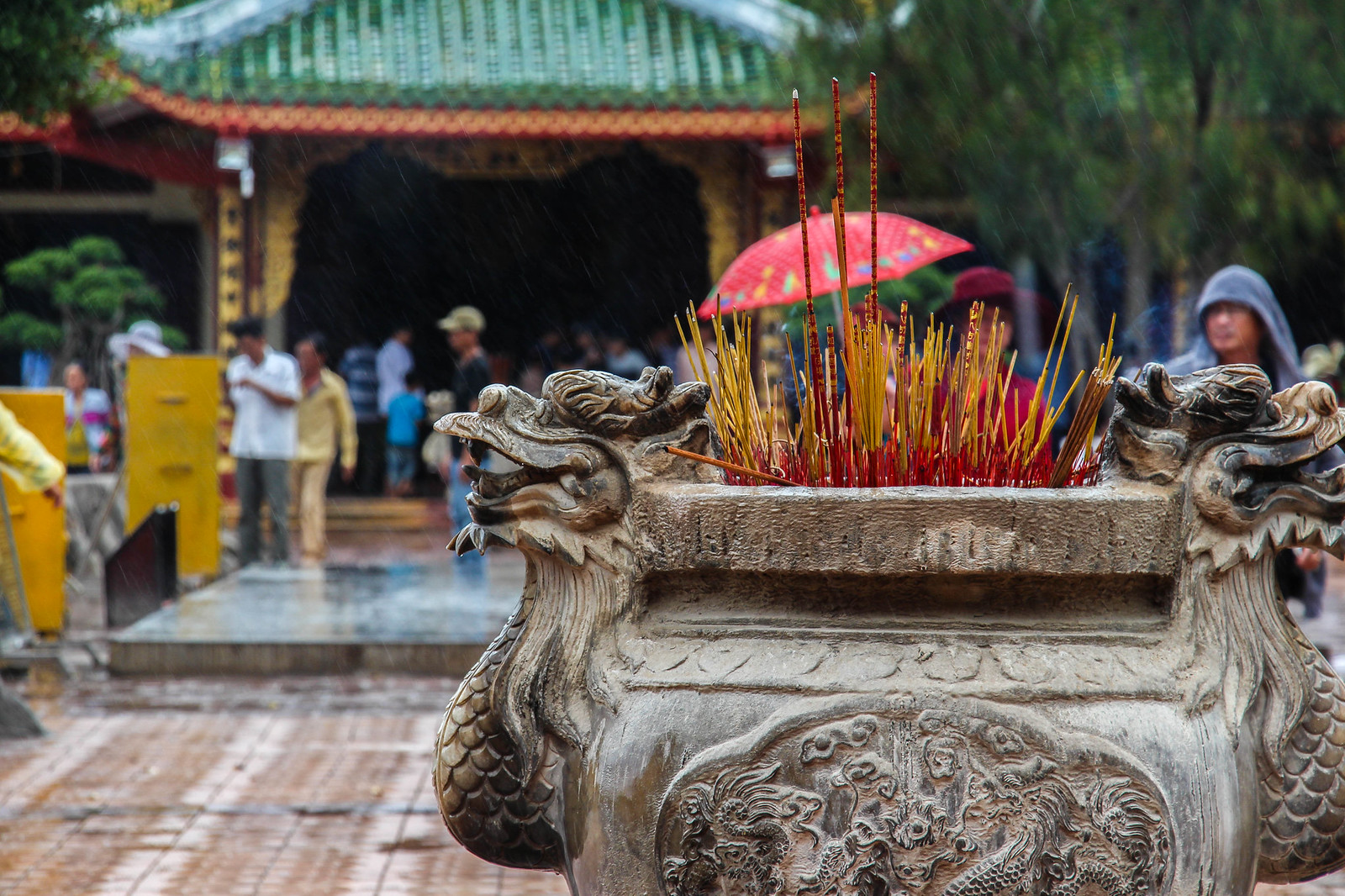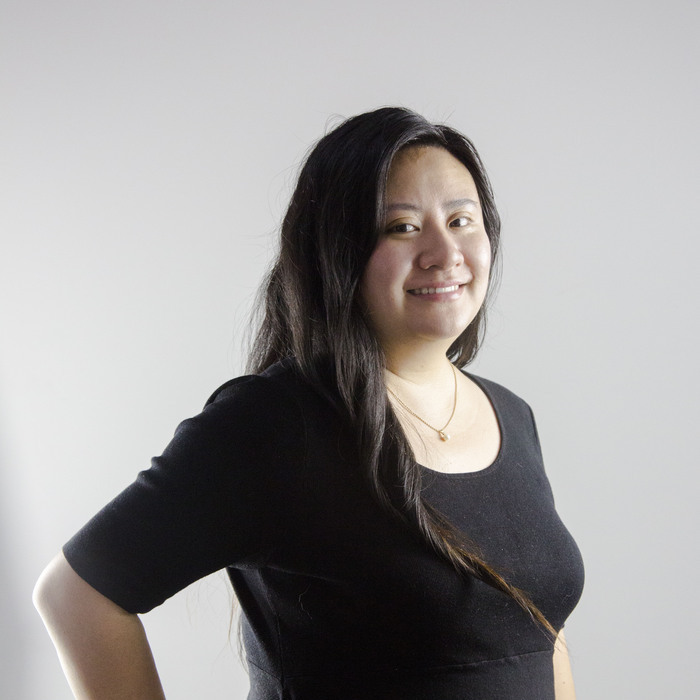The Effects of COVID-19 on Asian Americans
Last month, what everyone worldwide has been taking precautions against, affected my family and me—we caught COVID-19.
When the pandemic hit early last year, we all started wearing masks and only went out for essential errands. Those with
job functions permitting started working from home. As much as we made ourselves more aware of our surroundings to
ensure that we were doing everything we could to keep us and others safe, there comes a point where it escalates easily
because of one person. That is what happened—a coworker eased up on the precautions, caught the virus during the
holidays, and infected the entire workplace. We only spent time with our immediate family members, but because of that
one person, our entire family caught the virus. Thankfully, my parents, siblings, and nephews had either asymptomatic or
mild cases. We all lost our taste, smell, coughed, and experienced other symptoms of the virus.
My body took a sudden turn and I was bed ridden with a fever for the second week and a half. My coughs were on a verge,
or was, pneumonia where I could not breathe and dealt with horrible lower back pain where I could not lay down. I could
not eat so I forced myself to drink smoothies in lieu of meals for four to five days. The nurse at our local hospital
recommended me to go to the emergency room but I did not want to take up space there so I forced myself to ride it out.
I kept reminding myself to not complain because other people have worst reactions to the virus where they need to be
hospitalize.
I do not typically get sick even during flu season and of 27 years of living, this was the second time I have gotten
extremely ill. This goes to show that the virus affects each body differently and is not something that one should scoff
at and pass off as “another virus.” COVID-19 is real and when someone decides to not take safety precautions, it turns
into a ripple effect.
The same ripple effect applies to the amplified anti-Asian racism that the Asian community has been experiencing since
the start of the pandemic in 2020. Earlier this week, I was at my local Asian grocery store to prepare for Lunar New
Year when I was stopped by an Atlanta Journal-Constitution journalist, Matt Kempner, who was going around the county
interviewing Asian Americans about their experience with the pandemic. We had a good conversation about how Asians have
become a target of blame for the virus even though our businesses were among the first, before Fortune 500 companies, to
check temperatures, require masks, and put up partitions at the registers. Of everyone interviewed, we all had one thing
in agreement—we do not feel safe.
“Many Chinese Americans — and other Asians — interviewed said they feared they would be targeted for racism as a result
of the pandemic. “I think for a little while, most of the Chinese didn’t feel very safe,” said Bing Zeng, the chairwoman
of the Atlanta chapter of the Association of Chinese Professionals.”
Matt Kempner, Atlanta Journal-Constitution
Much like the experience of my fellow Asian Americans, I have grown up feeling displaced and dealt with anti-Asian
racist acts. It was a bit easier because our predecessors created Asian communities with grocery stores that carry the
ingredients we use to cook food and we had entertainment such as Paris by Night concerts and Cantonese dramas by TVB. My
family and I were lucky to be in the metro Atlanta area and have access to these communities. This helped us stay
connected with our roots and I settled for this sense of representation because I felt that is the way it goes when it
comes to mainstream media.
My family and I fortunately did not experience overt racial aggression over the years living in America but we have and
continue to go through micro aggressions and other situations where people would try to take advantage of us because of
our immigrant status and language barriers. I remember my first brush with racism at seven years old and then some. They
were usually acts from other minorities because we did not live in predominantly white communities. I was not able to
see it then, but now that I am older, I see the dangers of the model minority myth. When the minorities fight against
each other, the people who win are on top—the rich remains rich, those in power stay in power, and we end up falling
prey to what they manipulated us to do and distracting us from what is truly happening. It did not help when people were
encouraged to blame the coronavirus on Asians and that ripple effect caused an increase in anti-Asian hate crime and
assaults on the elderly Asian American community in major cities that are all about inclusivity no less.
The other half of this is that as part of our cultural upbringing, we were raised to not cause a scene. Our elders were
on survival-mode to work hard, be diligent, and keep to ourselves so that we do not get into trouble. The idea that we
need to be happy simply being able to exist in this country should be enough. With the string of attacks on our Asian
elders, most of them reported not wanting to bring the assaults to the law enforcement and let it go. This reminds me of
my thought process when I was recovering from COVID-19 where I felt like I could not feel bad about the virus because
other people are dying from it or being hospitalized needing oxygen. My pain does not diminish their experiences with
the virus and the same goes with allyship and anti-Asian racism. We cannot allow the model minority myth fool us into
believing that the violence and racism towards Asians are not important enough to take action.
I admit that I succumbed to the pressure to not speak up about the xenophobic physical and verbal attacks on the Asian
community that amplified because of the pandemic. It happened during the rise of the Black Lives Matter movement and I
felt like I was not educated enough to be able to have an open dialogue, that it would take away from the BLM movement,
or that I may be overreacting or not understand my own privilege, because the way that the model minority myth was
described by non-Asians is that we have privilege similar to the white community because we are perceived as closer in
relation to them. During the time, I felt uneducated so I went and bought books by black authors to learn more about
systemic racism and privilege and continued to support black-owned business owners and artists. I kept those actions
private because I did not want to be judged as virtue signaling and in general, I feel like action does not need to be
vocalized.
I had conversations where the other person would insinuate that what the Asian community is going through during the
pandemic is nothing compared to what the black community goes through, and they tested me to see how I would respond. I
gave them the answer they wanted to hear—by undermining the Asian experience. I now realize that I passed their test but
I failed myself and my community and for that I apologize. Though I did not express my anger and solidarity on social
media about the attacks on Asians throughout 2020, I did what I did for the black community during the start of the BLM
movement—I made sure to continue to shop at all of my local Asian grocery stores, bought takeout from Asian-owned
restaurants, and supported Asian authors and artists even more so than I already was pre-pandemic. The truth is, I was
gaslit and I fell for it but I know better now. Allyship does not have to be exclusive and I am here to have a dialogue
to those who are open to it and to educate myself and those around me.
Ignorance breeds violence and misunderstandings. We need to all stand together—not just the Asian community—to educate
one another and be more understanding of each other. Let us continue this fight in solidarity against COVID-19 and
racism. Amanda Nguyễn stated it best, “We are not your model minority.” Please stay safe especially during Lunar New
Year this week, continue to support Asian businesses, and wear a mask.
-Tuyền Châu


